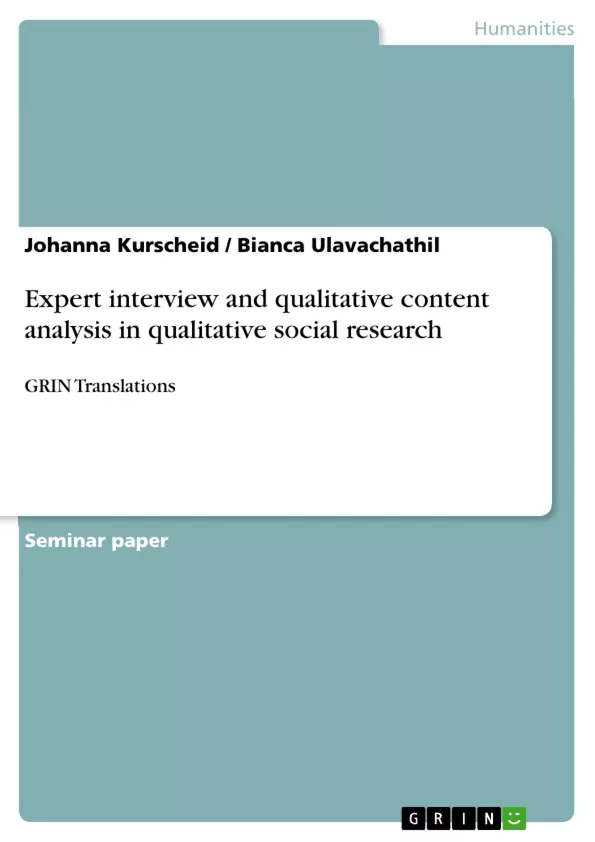This text was translated with the help of AI and reviewed by the GRIN editorial team.
In the following, we will describe what qualitative social research and its characteristics as well as its basic principles are, followed by a description of the expert or guideline interview and qualitative content analysis. Finally, we will present the study "Wege aus der Jugendkriminalität. Eine qualitative Studie zu Hintergründen und Bedingungen einer erfolgreichen Reintegration von mehrfachauffälligen Jungtätern" by Wolfgang Stelly and Jürgen Thomas.
Inhaltsverzeichnis (Table of Contents)
- Qualitative social research
- The expert interview
- The role of the interviewee as an expert
- Expert knowledge and research interest
- The expert discussion as a guideline interview
- The construction of relevant questions
- Preparation of the interview
- Conducting the expert interview
- Qualitative content analysis
- A sample study
Zielsetzung und Themenschwerpunkte (Objectives and Key Themes)
This text aims to provide an overview of qualitative social research, focusing on the expert interview as a data collection method and qualitative content analysis as an evaluation method. It illustrates these concepts by presenting a sample study on reintegration of young offenders.
- Characteristics and principles of qualitative social research
- The expert interview as a research method
- Qualitative content analysis as an evaluation technique
- Practical application of qualitative research in social work and related fields
- The importance of understanding social reality from the perspective of individuals
Zusammenfassung der Kapitel (Chapter Summaries)
Chapter 1 introduces qualitative social research, highlighting its relevance in social work and related disciplines. It emphasizes the importance of understanding social reality through the perspectives of individuals and institutions. This chapter explores the benefits of qualitative research in gaining insights into motives, values, and social structures. It also underscores the importance of open-ended research questions, allowing for flexibility in the research process and acknowledging the subjective nature of interpretations.
Chapter 2 delves into the expert interview as a common method in empirical social research. It defines the role of the interviewee as an expert, highlighting their specialized knowledge and decision-making capabilities. The chapter differentiates between operational, interpretative, and contextual knowledge, emphasizing the importance of aligning the expert's knowledge with the research interest. It introduces the guideline interview as a type of non-standardized interview, emphasizing its open-ended nature and suitability for exploring social issues.
Schlüsselwörter (Keywords)
This text focuses on key concepts in qualitative social research, including expert interview, guideline interview, qualitative content analysis, social reality, expert knowledge, research interest, and reintegration of young offenders.
- Quote paper
- Johanna Kurscheid (Author), Bianca Ulavachathil (Author), 2013, Expert interview and qualitative content analysis in qualitative social research, Munich, GRIN Verlag, https://www.grin.com/document/1466375



